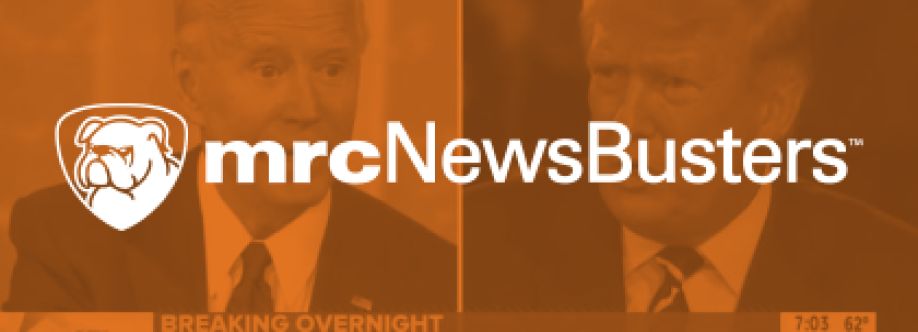
www.newsbusters.org
CNN Downplays Pending Legal Action Against Lib Mob that Stormed Church
On Wednesday’s CNN This Morning, the network attempted to downplay possible criminal charges against protestors involved in storming a Saint Paul, Minnesota church in the recent anti-ICE unrest. CNN guest Sarah Krissoff, a former federal prosecutor for the Southern District of New York, minimized the threat of arrests while complaining about so-called political persecutions of Minnesota Democrats.
Guest host Erica Hill introduced the segment with news of subpoenas being issued to Democratic Minnesota leaders, including Governor Tim Walz, Minneapolis Mayor Jacob Frey, and Attorney General Keith Ellison.
“I was speaking with another former federal prosecutor yesterday who said this is highly unusual. This is not the way the DOJ does business. You don't issue a subpoena if you're potentially investigating someone,” Hill said. Krissoff agreed and rambled through an answer worrying of a pending clash between state and federal officials:
Yeah, I mean, if they want to be overt about it, they certainly can, you know, issue a subpoena to someone. The really sort of unprecedented issue here is the nature of this investigation. (…) It just really sets up this showdown between the federal and local and state officials here.
Hill then asked Krissoff about possible criminal action taken against anti-ICE agitators, which included disgraced former CNN host Don Lemon, who stormed a Minnesota church during its Sunday service. Hill did mention how the church was a private space and how there was a right to religion in that place, but played dumb about alleged violations of the FACE Act:
And when we look at potential charges, when it comes to the protesters who were at that church in Saint Paul on Sunday - you know, we're hearing from protesters right to free speech. This is a private space, though, and there is, of course, also right to, to, to religion in that space. How do you see that playing out? This is what's calling it, I believe it's called the FACE Act, which is a lot of, which is a lot of what we're hearing. What could those charges potentially be?
In response to Hill’s mention of the FACE Act, which was used against pro-life protestors during the Biden Administration, Krissoff remained fully skeptical of charges being able to survive a jury trial.
Instead of talking about the actual merits of criminal charges, Krissoff complained about the DOJ using too much force.
“Yeah, a lot of these sort of circumstances, in addition, sort of the circumstances regarding the church, they seem like, you know, there are threats of charges. There are, there is, you know - the DOJ is very clearly trying to bring the full force of itself down upon people,” Krissoff responded.
The segment concluded with Krissoff decrying perceived political persecutions, again basically scoffing at the premise of Hill’s question about the FACE Act: “But at the end of the day, it is very hard to imagine these types of charges stick and that they go forward and - ultimately criminal charges in our country have to be decided by a jury, right? The DOJ doesn't get to decide whether someone is guilty or not.”
No mention of criminal campaigns taken against Trump by the likes of New York Attorney General Letitia James or New York City District Attorney Alvin Bragg, who got elected running on the political persecution of Trump.
CNN squeezed the mention of the Minnesota church incident in a segment dominated by outrage over Trump DOJ actions in Minnesota, spawned by the state’s rampant fraud crisis. Of course, it is not unexpected, but CNN and their guest decided to not give the trending story any credence.
The transcript is below. Expand to read:
CNN This Morning
January 21, 2026
6:30:00 a.m. Eastern
ERICA HILL: The Justice Department, meantime, is hitting at least five Minnesota officials with subpoenas, including Governor Tim Walz and Minneapolis Mayor Jacob Frey, as well as the state's attorney general, Keith Ellison, the Mayor of Saint Paul, and a local county attorney. It's all part of a federal investigation, we’re told, into alleged obstruction of immigration enforcement efforts. And it comes as Homeland Security Secretary Kristi Noem warns of arrests coming in connection to anti-ICE protests at a Minnesota church in Saint Paul over the weekend.
[Cuts to video]
KRISTI NOEM (DHS Secretary): And that pastor really did a remarkable thing there, trying to protect his parishioners. [Transition] And there's going to be arrests in the next several hours. [Transition] There will be arrests tied to that, and people will be brought to justice for how they violated the law in that situation.
[Cuts back to live]
HILL: Joining me now to discuss is Sarah Kristof. She's a former federal prosecutor for the Southern District of New York. Sarah, it's good to have you with us. I want to start. If we could, on these subpoenas, which are reportedly being issued. We're talking about officials here. I was speaking with another former federal prosecutor yesterday who said this is highly unusual. This is not the way the DOJ does business. You don't issue a subpoena if you're potentially investigating someone.
SARAH KRISSOFF: Yeah, I mean, if they want to be overt about it, they certainly can, you know, issue a subpoena to someone. The really sort of unprecedented issue here is the nature of this investigation. I mean, the - these officials have spoken out against ICE’s Operations. There's been a lawsuit filed that's pending in federal court in - in Minnesota. And so - to - in that context, to then issue a subpoena and say ‘oh, actually, there's a criminal investigation going on here by DOJ, we are now seeking documents from you in connection with that’. It just really sets up this showdown between the federal and local and state officials here.
HILL: And that's something I think people are trying to wrap their head around. Part of what we heard from, uh, from Gregory Bovino yesterday is he was saying that some of the local leaders, in his words, and I'm quoting him here, “relied on heated rhetoric and allegations that distract from the facts.” Um, are words enough to lead to criminal charges?
KRISSOFF: I mean, listen, the DOJ has very broad discretion to open an investigation, right? They open it on the slimmest of, of innuendo or belief. But to bring charges is an entirely different thing, which is what we've seen, frankly, in connection with these other politically motivated prosecutions of, of, of politicians that have been unsuccessful in other jurisdictions. So, I mean, I think it is, it is one thing to issue a subpoena and sort of, you know, try to make a show of force here. I think it will be an entirely different thing to try to proceed with some sort of charges or any type of charges, frankly.
[DISCUSSION ON CHURCH]
HILL: And when we look at potential charges, when it comes to the protesters who were at that church in Saint Paul on Sunday - you know, we're hearing from protesters right to free speech. This is a private space, though, and there is, of course, also right to, to, to religion in that space. How do you see that playing out? This is what's calling it, I believe it's called the FACE Act, which is a lot of, which is a lot of what we're hearing. What could those charges potentially be?
KRISSOFF: Yeah, a lot of these sort of circumstances, in addition, sort of the circumstances regarding the church, they seem like, you know, there are threats of charges. There are people are arrested. There are, there is, you know - the DOJ is very clearly trying to bring the full force of itself down upon people. But at the end of the day, it is very hard to imagine these types of charges stick and that they go forward and - ultimately criminal charges in our country have to be decided by a jury, right? The DOJ doesn't get to decide whether someone is guilty or not.”
HILL: It is an excellent point. You talk about - but you talk about the government bringing the full force. We also have, of course, The Washington Post reporting DOJ is bringing in additional prosecutors to help when it comes to cases related to anti-ICE protests amid a staffing shortage. This comes on the heels of, I believe it was six prosecutors in Minnesota who resigned last week, although Pam Bondi then went on to say she was going to fire them. What does all this do in terms of pressure on prosecutors in this moment?
KRISSOFF: It is very difficult to be a prosecutor in the Department of Justice at the moment. So there is a shortage of prosecutors across the DOJ, and there is also a shortage of career prosecutors, many folks who have been there for many years have that expertise and knowledge, how to bring these cases, how to proceed with them judiciously, have left the Department of Justice. There was a real flight from the Department of Justice.
And so they are - the the DOJ is understaffed generally at the moment, and they are really scrambling to sort of do the work and then to be pulled in all of these different directions, right. To be told on Monday they're doing one thing and Tuesday they're doing another, and Wednesday they're investigating yet another, you know, political enemy really hinders the work that they are doing. It makes it very hard for them to do the work and, frankly, unlikely that any of these politically prosecuted, politically motivated prosecutions will go anywhere.
HILL: Sara, really appreciate your insight on this. Thank you.
KRISSOFF: Thank you.

